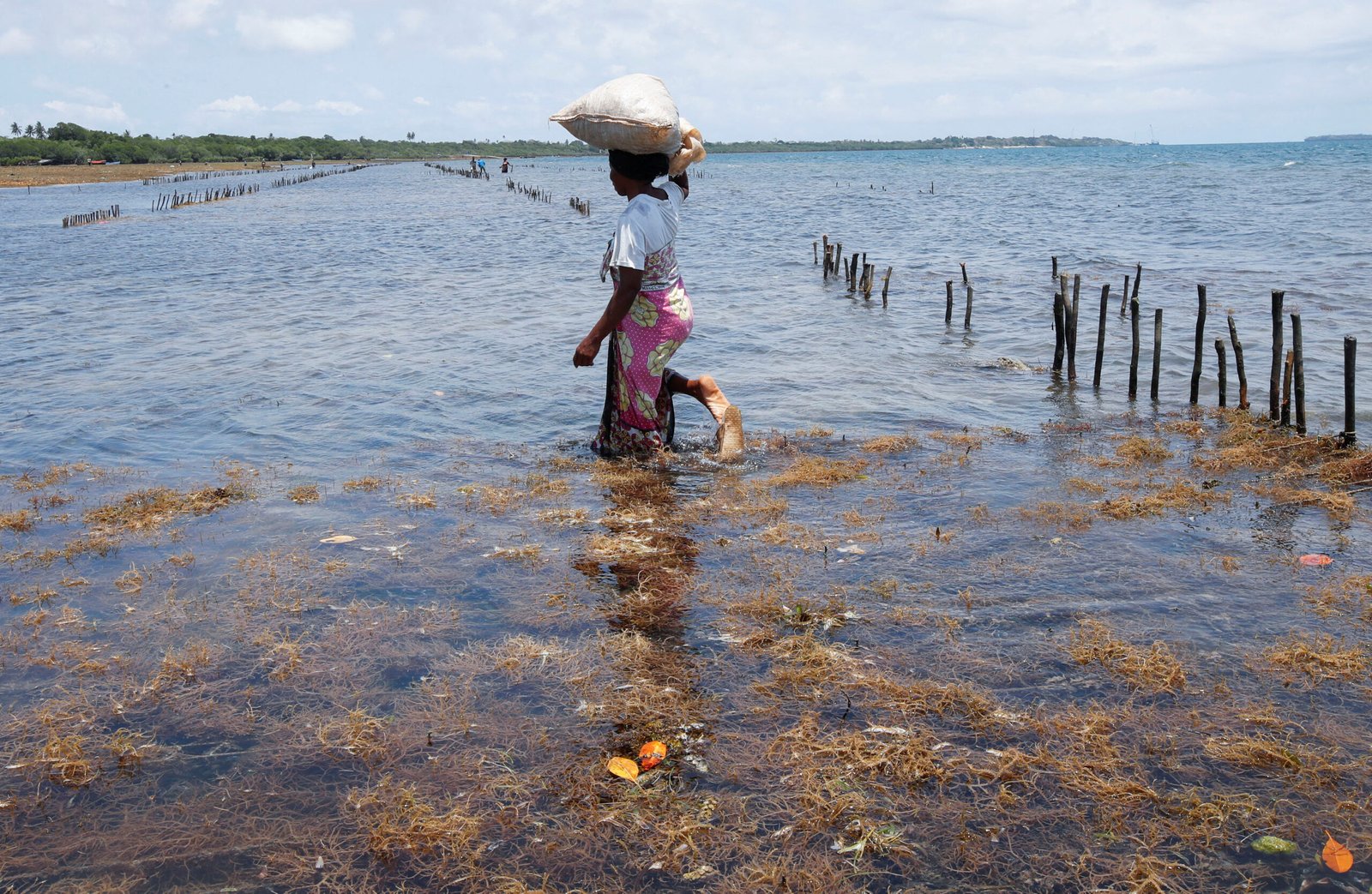Along the turquoise shoreline of Tanzania’s coast, something quietly transformative is taking root beneath the waves.
In communities scattered across Zanzibar, Lindi, Tanga, and the Coast Region, seaweed farming is blossoming into more than just an economic activity — it’s becoming a way of life.
Where fishing once ruled the tide, rows of seaweed plots now stretch along the shallow seabed, tended by women who see the ocean not only as a food source, but as a farm.
“I used to rely on my husband’s fishing income,” says Mariam Hassan, a seaweed farmer in Jambiani. “Now I can pay my children’s school fees and contribute to the household.”
Tanzanian farmers mostly grow red seaweed varieties like Eucheuma and Kappaphycus, which are highly sought after for producing carrageenan — a gelling agent used globally in foods, cosmetics, pharmaceuticals, and even toothpaste.
Globally, seaweed farming is one of the fastest-growing types of aquaculture, with rising demand in countries like China, South Korea, and across Europe. In Tanzania, the industry now supports over 25,000 small-scale farmers.
Learn more about how seaweed is used around the world.
More than 80% of Tanzania’s seaweed farmers are women — often referred to locally as “Mwani Mamas.” In communities where opportunities for women are limited, seaweed has become a path to financial independence and social empowerment.
In areas like Matemwe, women have formed cooperatives to not only cultivate seaweed but also process it into value-added products such as soaps, lotions, powders, and snacks. These innovations have been spotlighted in international features like Vogue’s coverage of the Mwani Mamas.
Explore how women in Zanzibar are reshaping their economy.
Seaweed farming is hailed by scientists as one of the most climate-resilient and sustainable livelihoods available. It doesn’t require fresh water, pesticides, or arable land. In fact, seaweed helps to absorb carbon dioxide and improve marine biodiversity, making it a natural solution for addressing ocean pollution and reef degradation.
In regions where mangroves and coral reefs are under pressure, integrating seaweed farms with ecosystem preservation is proving vital.
Organizations like The Nature Conservancy are working with local farmers to align seaweed aquaculture with marine conservation efforts.
Despite its promise, the industry faces mounting pressure from climate change. Rising sea temperatures and irregular weather patterns have led to seasonal crop loss and what local farmers call “melting” — when seaweed fails to grow or disintegrates prematurely due to heat stress and bacterial infections.
Also Read; Africa Faces Urgent Call to Rethink Infrastructure Financing
There’s also a need for better infrastructure. Most farmers still rely on traditional sun-drying methods, leaving their harvest vulnerable to sudden rains. Sustainable solutions — such as solar dryers and cold storage — are being piloted but remain out of reach for many communities.
Read more about climate impacts on Tanzania’s seaweed industry.
Tanzania is now being encouraged to fully integrate seaweed into its blue economy — a development strategy that focuses on sustainably using ocean resources for livelihoods, energy, and growth.
Policymakers, marine scientists, and community leaders are exploring how seaweed farming can complement tourism, fisheries, and environmental protection in coastal development plans.
Other countries like Kenya and Madagascar are now looking to replicate Tanzania’s grassroots success.
As the tide pulls back each evening, seaweed farmers walk home with baskets full of their harvest — and with it, a sense of purpose. For women like Mariam, the ocean is no longer just a backdrop. It’s where transformation happens — quietly, daily, and with enormous impact.
“This is more than seaweed,” she says. “It’s freedom. It’s future.”







